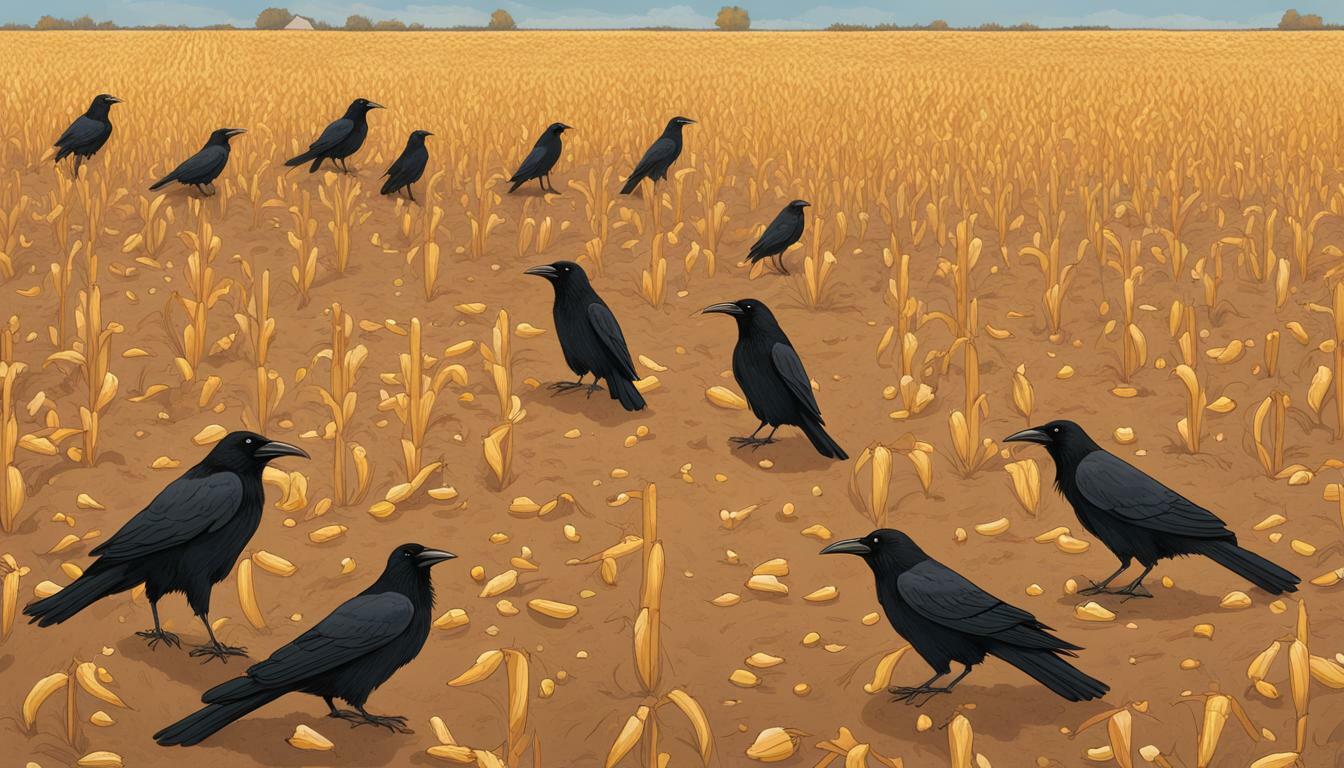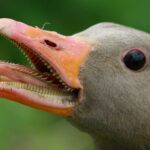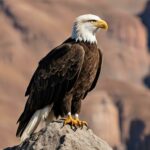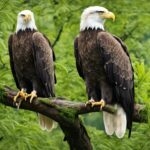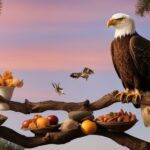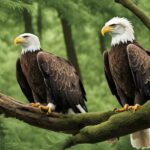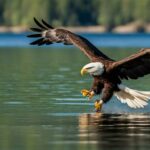If you have ever wondered about the dietary habits of crows, you may have asked yourself, “Do crows eat corn?” These highly adaptable birds are renowned for their eclectic diet, but are they fond of this particular crop? In this section, we will explore the feeding behaviors of crows and investigate their consumption of corn.
Crows are omnivorous and opportunistic, meaning that they can consume a wide range of foods and will eat whatever is available to them. They are known to feed on fruits, seeds, insects, small animals, and even carrion. However, their occasional consumption of corn has raised questions about their impact on agricultural crops, particularly corn fields.
Key Takeaways
- Crows have an eclectic diet and are omnivorous.
- They are opportunistic feeders, scavenging on a wide range of food sources.
- Crows do consume corn, but it is not their primary food source.
- Their impact on corn fields is generally minimal, and farmers often use scare tactics or deterrents to prevent damage from birds.
The Eclectic Diet of Crows
Crows are fascinating creatures known for their diverse diet. While many birds have a limited selection of food sources, crows are opportunistic feeders, consuming a wide range of foods. Their ability to adapt and survive in various environments is due in part to their eclectic diet.
These birds are omnivorous, meaning they eat both animal and plant-based foods. Some of the foods that crows eat include fruits, seeds, insects, small animals, and even carrion. Their ability to consume a variety of foods allows them to find food sources in many environments.
One intriguing aspect of crow behavior is their use of tools to obtain food. For example, crows have been observed using sticks to access food sources, such as grubs and insects, hidden within tree bark. This behavior demonstrates their intelligence and problem-solving abilities.
In addition to their food choices, crows are also known for their foraging habits. They use their sharp beaks and claws to scavenge, dig, and unearth food. Crows are also known to store and hide food for future consumption, displaying their adaptive foraging behaviors.
While crows have a varied diet, research suggests that they do have preferences. Crows tend to favor foods that are high in fat and protein, such as insects, small mammals, and even eggs. However, they will also consume other foods when available, including agricultural crops like corn.
Understanding the dietary habits of crows can help us appreciate their role in ecosystems and their ability to survive in diverse environments. Their adaptability and intelligence make them a fascinating subject of study in the ornithological world.
Corn as a Potential Food Source for Crows
While crows are known for their diverse diet, they do consume corn when available. However, corn is not their primary food source, and they rely on other food sources for their nutrition. Crows are more likely to feed on corn when it is readily available, such as in agricultural areas or during harvesting seasons.
Research suggests that crows have an opportunistic feeding behavior and tend to prioritize foods that are higher in fat and protein, such as insects and small mammals. Despite their occasional consumption of corn, it is not their preferred choice compared to other food sources.
When crows do consume corn, it may impact agricultural crops. However, their impact is generally minimal, and farmers often use scare tactics or deterrents to prevent damage to their crops. Overall, crows play an important role in ecosystems and are adaptable birds that can survive in diverse environments.
Crow Foraging Habits
Crows are highly intelligent and adaptable birds, with a diverse diet that includes a variety of food sources. They are opportunistic feeders, constantly on the lookout for opportunities to scavenge and forage for food. Their foraging habits are shaped by their environment, as well as their problem-solving skills and innate curiosity.
Crows use their sharp beaks and claws to scavenge for food, digging and unearthing food sources that other birds may not be able to access. They are known to store and hide food to consume it later, displaying a level of adaptive foraging behaviors that is unique among birds.
While crows are capable of foraging for themselves, they are also known to steal food from other birds and animals, such as seagulls and squirrels. This further demonstrates their resourcefulness and opportunistic feeding habits.
Overall, the foraging habits of crows are an important part of their survival strategy, allowing them to adapt to various environments and food sources. By understanding their feeding behaviors, we can better appreciate the role they play in ecosystems and their ability to thrive in different conditions.
Impact of Crows on Corn Fields
While crows may occasionally feed on corn fields, their impact on agricultural crops is generally minimal. Farmers often employ scare tactics or deterrents to prevent crows from damaging their crops. Despite their opportunistic feeding habits, crows do not pose a significant threat to the overall corn yield.
In fact, crows can even benefit farmers by consuming pests that may harm their crops. For example, crows are known to feed on corn earworms, a common pest that can damage corn crops. Therefore, having a small population of crows in a corn field can actually be beneficial for the crop’s health.
However, in large numbers, crows can cause damage to newly planted corn by digging up and consuming the seeds. This can be prevented by using deterrent methods such as loud noises or visual deterrents to scare the crows away.
Crow Feeding Preferences
Although crows are known for their ability to consume a wide range of foods, research suggests that they do have feeding preferences. Crows tend to favor foods that are high in fat and protein, such as insects, small mammals, and even eggs.
While crows may eat corn when it is available, it is not their preferred choice. They are more likely to feed on corn during harvesting seasons or when it is readily available in agricultural areas. However, they also rely on other food sources for their nutrition.
Their omnivorous behavior allows them to survive in various environments. Crows are highly adaptable birds and can scavenge, dig, and unearth food using their sharp beaks and claws. They are also known to store and hide food for future consumption, displaying their adaptive foraging behaviors.
Understanding the feeding preferences of crows helps us gain insight into their role in ecosystems and their ability to thrive in different environments. Despite occasionally feeding on corn, crows are not a significant threat to agricultural crops, and their impact on corn fields is minimal.
Crow Feeding Preferences
Research has suggested that crows have preferences when it comes to food. While they are known to consume a range of items, they tend to favor foods that are high in fat and protein. Insects, small mammals, and eggs are some of their preferred options. Although crows may eat corn when it’s available, it’s not their preferred choice compared to other food sources.
Conclusion
Overall, crows have an eclectic diet that includes a variety of foods. While they do occasionally feed on corn, it’s not their primary food source. Their impact on agricultural crops, including corn fields, is generally minimal. Understanding the dietary habits of crows can help us better appreciate their role in ecosystems and their ability to adapt to diverse environments.
Do Crows Symbolize Death If They Eat Corn?
Crows and the myth of death are intertwined in folklore, leading to the belief that these intelligent birds symbolize impending doom. However, it is important to note that crows are omnivorous and their diet extends beyond just corn. While their scavenging behavior may be considered ominous by some, it is merely a survival instinct rather than an omen of death.
FAQ
Q: Do crows primarily eat corn?
A: No, crows have an eclectic diet and corn is not their primary food source. They consume a wide range of foods including fruits, seeds, insects, small animals, and carrion.
Q: Do crows cause significant damage to corn fields?
A: While crows may occasionally feed on corn fields, their impact on agricultural crops is generally minimal. Farmers often employ scare tactics or deterrents to prevent damage.
Q: What are some other food sources for crows?
A: Crows prefer foods that are high in fat and protein, such as insects, small mammals, and eggs. They have a varied diet that allows them to survive in diverse environments.
Q: Are crows intelligent foragers?
A: Yes, crows are intelligent birds with excellent problem-solving skills. They use their beaks and claws to scavenge, dig, and unearth food. They can also store and hide food for later consumption.
Q: What is the overall role of crows in ecosystems?
A: Crows play an important role in ecosystems as scavengers and seed dispersers. Their diverse diet and adaptive foraging behaviors contribute to the balance of natural systems.

